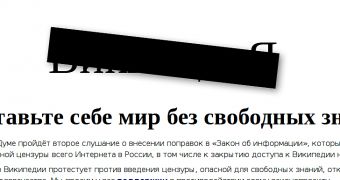Last year, Russia passed a rather controversial law which made it possible to regulate online content. The law was seemingly created with very specific content in mind, child abuse, drug use, suicide info and "extremist" propaganda.
Stuff most people wouldn't have a problem being removed from the web. But the Russian opposition and outside groups worried that this was just a way of introducing means for the already quite powerful government to suppress things it didn't like.
The law requires ISPs and sites to police the content they host. It's in effect now, but so far, it hasn't been abused, it seems. But it is definitely being used to get stuff off the internet.
The law was used to ask YouTube, Facebook and Twitter to remove questionable content. Facebook and Twitter complied, but YouTube fought the request.
This wasn't a case for Google standing up against censorship necessarily, the content and context were different on all three sites.
For example, Facebook was asked to remove a page that promoted suicide, something it would have done on its own anyway.
Twitter has also removed several tweets, allegedly linked to drugs and suicide. Twitter has implemented a policy where it removes tweets in countries where they're deemed illegal, but leaves them in place everywhere else.
Finally, YouTube removed a video which Russian officials claimed promoted suicide, but it later filed a lawsuit to have it reinstated claiming that the video was actually a tutorial on how to make fake wounds.
Laws like this are regularly pushed by governments around the world, some by well meaning but maybe misinformed politicians, some by grandstanding politicians and some by politicians with ulterior motives.
But it's universally true that any law which covers censorship can be and is very frequently abused or at least used beyond its initial scope.

 14 DAY TRIAL //
14 DAY TRIAL //